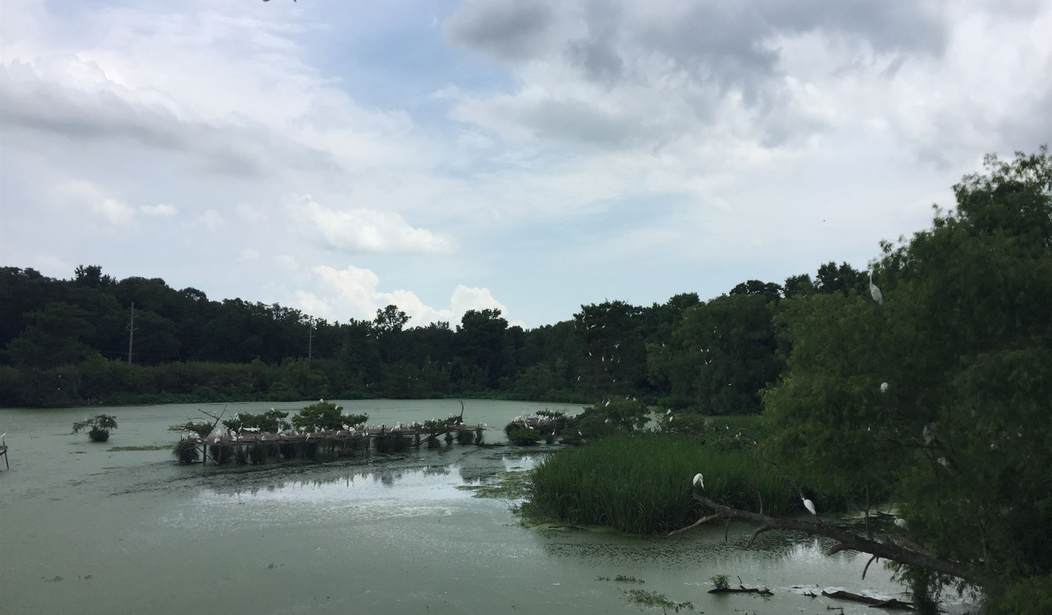I read “Heart of Darkness” by Joseph Conrad many a fortnight ago but perhaps hadn’t had enough experience with the call of the wild, as it were, having grown up in the Heart of Civilization, Atlanta, to appreciate it.
The surface-level narrative is about a steamboat captain dispatched to the Congo during the colonial era to fetch a man named Kurtz in the employ of a company dealing in ivory.
But that narrative is only the vehicle for a deeper analysis of the dichotomy between civilization and barbarism, which runs right down the heart of every man.
Related: COVID-19 in Vietnam
The de facto protagonist, Marlow — de facto because his account was actually relayed secondhand as a story told at sea to the real narrator, in a bit of literary ingenuity — was deeply mesmerized by the “heart of darkness,” the stretches of the Congo River in colonial Africa, and all of its suggestions of barbarism and the primordial origins of man, totally decoupled form modernity:
We penetrated deeper and deeper into the heart of darkness. It was very quiet there. At night sometimes the roll of drums behind the curtain of trees would run up the river and remain sustained faintly, as if hovering in the air high over our heads, till the first break of day. Whether it meant war, peace, or prayer we could not tell. The dawns were heralded by the descent of a chill stillness…
We could have fancied ourselves he first of men taking possession of an accursed inheritance, to be subdued at the cost of profound anguish and of excessive toil. But suddenly, as we struggled round a bend, there would be a glimpse of rush walls, of peaked grass-roofs, a burst of yells, a whirl of black limbs, a mass of hands clapping, of feet stamping, of bodies swaying, of eyes rolling, under the droop of heavy and motionless foliage. The steamer toiled along slowly on the edge of a black and incomprehensible frenzy. The prehistoric man was cursing us, praying to us, welcoming us — who could tell?...
If you were man enough you would admit to yourself that there was in you just the faintest trace of a response to the terrible frankness of that noise, a dim suspicion of there being a meaning in it which you — you so remote from the night of first ages — could comprehend.
Simultaneous awe and revulsion at the “heart of darkness” is rampant throughout the book.
Marlow concluded his tale without having found which world he preferred — the savage or the civil — and discussed his dissatisfaction with the latter after he returned from the Congo to Europe:
I found myself back in the sepulchral city resenting the sight of people hurrying through the streets to filch a little money from each other, to devour their infamous cookery, to gulp their unwholesome beer, to dream their insignificant and silly dreams. They trespassed upon my thoughts. They were intruders whose knowledge of life was to me an irritating pretence, because I felt so sure they could not possibly know the things I knew. Their bearing, which was simply the bearing of commonplace individuals going about their business in the assurance of perfect safety, was offensive tome like the outrageous flaunting of folly in the face of a danger it is unable to comprehend. I had no particular desire to enlighten them, but I had some difficulty in restraining myself from laughing in their faces, so full of stupid importance.
Perhaps the heart of darkness lives in us all to some extent, the ancestral call to strip our clothes and curse the concrete in favor of mud and wild freedom.
Maybe it’s the case that something has been lost in all of the “progress” we’ve made in the name of technological advancement.










